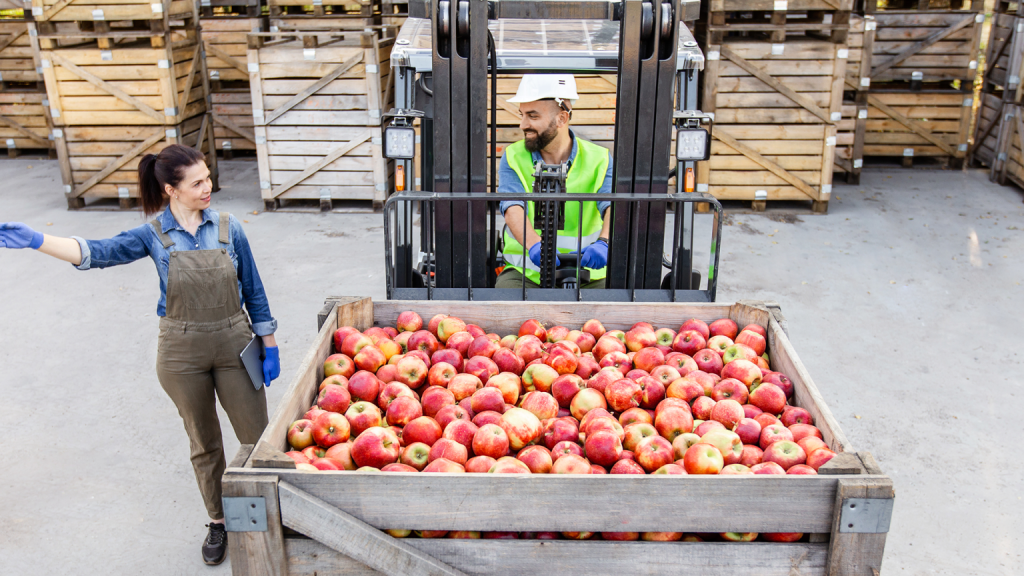Understanding what ISO 22000 is has become practically essential when it comes to the food industry. Companies in this sector that do not adopt this standard may face a variety of issues—from internal inefficiencies to external problems involving customers.
The list is long, but among the most common threats are contamination of food products—or items that come into contact with food, such as packaging. This, of course, can result in unsafe products reaching consumers, leading to a loss of customer trust, damage to the company’s reputation, fines, and operational shutdowns.
Moreover, companies that are unaware of ISO 22000—and consequently do not implement the standard—often experience various internal issues such as raw material waste, disposal of finished products, increased rework, poor traceability, and many other process-related problems.
Due to these factors, we’ve created this content to help you understand the standard and decide whether to implement it. We’ll explain what ISO 22000 is, its benefits, and what types of companies it’s suited for. Let’s dive in!
What Is ISO 22000 – Food Safety Management Systems
ISO 22000 is a global standard published by the International Organization for Standardization (ISO). It sets out the requirements for establishing and maintaining food safety management systems (FSMS).
The main objective of ISO 22000 is to ensure that food is safe for human consumption. The standard applies to the entire food chain—from farm to table—and is applicable to any organization directly or indirectly involved in the food supply chain.
To achieve this, ISO 22000 combines several approaches, encouraging Good Manufacturing Practices (GMPs) and focusing on process- and risk-based management. The standard integrates principles from the Hazard Analysis and Critical Control Points (HACCP) system and incorporates application steps developed by the Codex Alimentarius Commission.
Benefits of ISO 22000:2018 – Food Safety Management Systems
To better understand what ISO 22000 is and the benefits it offers, we can refer to the standard’s own page on the ISO website. One of the highlights mentioned is its social value throughout the food supply chain. Here’s a direct quote:
“ISO 22000 is crucial for both consumers and businesses because it enables organizations to improve their overall food safety performance through a systematic approach.”
The ISO website also presents a list of benefits, which we’ve used as the foundation for the advantages below:
- Enhanced food safety: The standard helps companies ensure that food products are safe for consumption, preserving human life and preventing food-related health issues.
- Improved regulatory compliance: ISO 22000 helps organizations identify, understand, and meet legal requirements, avoiding fines, sanctions, or operational interruptions. This not only reduces losses but also increases process reliability.
- Greater trust from customers and stakeholders: Adopting ISO 22000 builds greater trust with consumers and stakeholders. As a globally recognized and respected standard, it demonstrates the company’s commitment to food safety and product quality.
- Increased operational efficiency: The best practices outlined in the standard help streamline processes, reduce the risk of food safety incidents, and improve efficiency by addressing bottlenecks. It also promotes a culture of continuous improvement and hygiene.
- Access to new markets: These combined benefits result in a stronger, more competitive company, facilitating entry into new markets and supporting medium- and long-term sustainability.
Who Should Use ISO 22000?
ISO 22000:2018 contains requirements for any organization within the food chain, making it suitable for a wide range of businesses.
This includes farmers, processors, logistics companies, packaging manufacturers, ingredient suppliers, and even restaurants. Below is an illustrative list showing the standard’s broad applicability:
- Food and beverage manufacturers
- Ingredient and food additive industries
- Food storage and distribution companies
- Supermarkets and food retail chains
- Restaurants, bars, and catering services
- Agricultural cooperatives and producers
- Slaughterhouses and meat processors
- Food packaging manufacturers
- Equipment suppliers for the food industry
- Food transportation and logistics companies
- Food testing laboratories
- Cleaning and sanitation service providers for food environments
- Among many others
FSMS: More Than a Standard, a Culture That Saves Lives
The food industry is deeply integrated into people’s daily lives, delivering everything from basic nutrition to fine dining experiences—and directly impacting public health, well-being, and consumer trust.
Contaminated products can cause illness, discomfort, and even fatalities, showing the high level of responsibility in this sector. That’s why having robust standards and a well-aligned, effective Food Safety Management System (FSMS) is vital.
By truly understanding what ISO 22000 is, we also come to see that the standard offers a major advantage over other FSMS models or non-standardized approaches. ISO 22000 provides an integrated management framework—not just controlling biological, chemical, or physical hazards in food, but creating an organizational culture focused on prevention, traceability, and continuous improvement.
This culture goes far beyond merely meeting technical, regulatory, or legal requirements. It engages people at all levels of the organization—from top management to the shop floor—in a daily commitment to food safety. In practice, this means raising awareness, developing competencies, strengthening communication, and ensuring that every decision—no matter how small—takes into account its potential impact on the health of the end consumer.
Ultimately, when a true food safety culture is embedded, FSMS becomes more than a set of procedures or bureaucratic processes. It becomes part of the company’s identity. That’s when ISO 22000 shows its true value: as a tool to protect lives, strengthen brands, and turn responsibility into trust. And at the end of the chain, that trust is rewarded—with profitability and sustainability.










